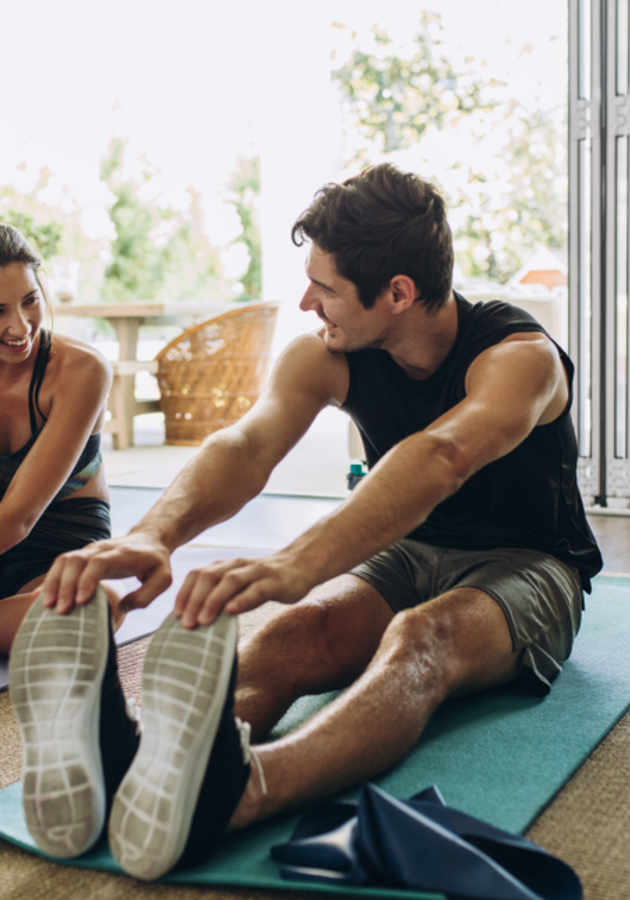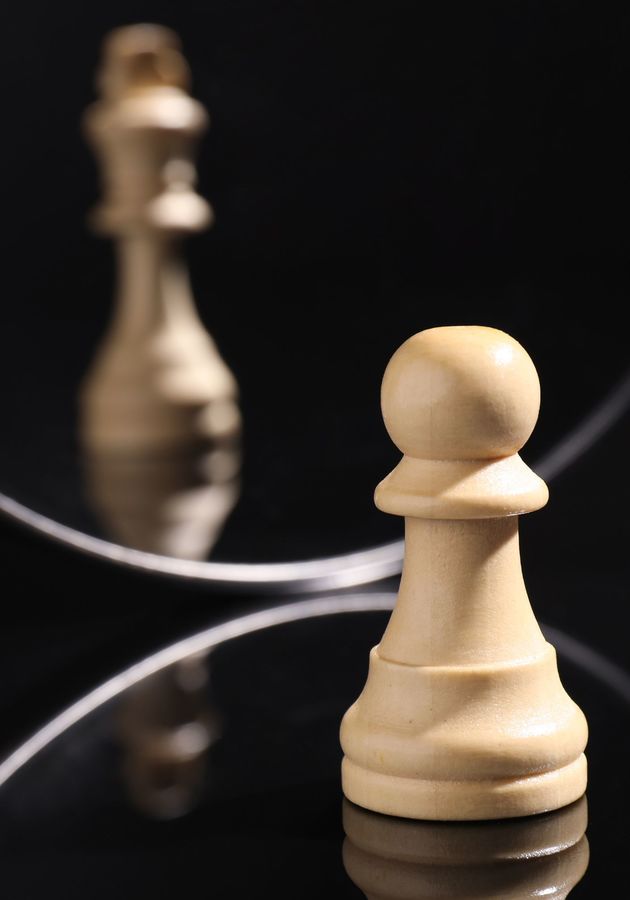Do you struggle to exercise regularly or avoid exercising overall, even if you know it is beneficial for your health? Do not judge yourself - your feelings are completely justified from an evolutionary perspective, says Daniel Lieberman. The truth is, we never evolved to exercise - our ancestors were physically active but never ran or walked just to stay healthy. In ‘’Exercised,’’ Lieberman uses evolutionary biology to prove that our avoidance of exercise is perfectly normal. So, get ready to hear new insights about your (in)activity!
Are we born to exercise?
Exercising is an inevitable part of life in contemporary society. Today, millions of people are involved in some physical activity to manage their weight, protect themselves from diseases or extend their lifespan. However, Lieberman says industrialized societies generally ignore or misinterpret evolutionary and anthropological perspectives on exercising. Therefore, most of the beliefs and attitudes we have about exercising nowadays are inaccurate and exaggerated (Lieberman uses the term ‘’myth’’ when talking about them), such as the one that we should all have an innate desire to exercise.
One of the most popular modern myths about exercise is the one about the ‘’athletic savage.’’ The essential idea of this myth is that people whose culture is intact by modern lifestyle are superathletes. To explore the foundations of this belief, Lieberman went to the Sierra Mountains to do research on the Tarahumara tribe, famous for running unimaginable distances. This tribe became widely known when Christopher McDougal published the book ‘’Born to Run,’’ in which he portrays the extremely healthy Tarahumara people as the world’s most amazing runners, who routinely run great distances barefoot.
It turned out that Tarahumara did not run because they liked it, as McDougal writes in his book. Lieberman says members of this tribe run only for practical and religious reasons - when they need to hunt for food or engage in a spiritual ceremony called .
Tarahumara and other indigenous people who are hunter-gatherers engage in hours of physical work, since they lack the machinery to do all the work for them. Physical activity is a necessity in their everyday life - they do not think about whether it is healthy or not. Moreover, when they are not hunting for food or cultivating the land, people in these tribes spend their free time resting from work, and doing what we nowadays consider unhealthy - sitting or lying down.
All in all, Lieberman believes their lack of notion that physical activity has any purposes other than practical debunks the myth about us being born to exercise.
Do not feel guilty when you are inactive
If you often feel guilty for doing nothing, the reason for that is another myth that industrialized societies created about exercise. Nowadays, it is undesirable to be inactive. However, Lieberman says there is no reason to judge those who spend time resting - laziness is as important for our bodies as physical activity is.
As you sit and read (listen to? - Rachel) these words, your body is not inactive - it is working hard to keep you alive. Your heart, for instance, is contracting 60 times a minute to pump blood to every part of your body. Furthermore, your intestines are digesting the last meal you had. Your liver and kidneys are regulating and filtering your blood. Your fingernails are growing. Your brain is processing these words, and all the cells in every tissue of your body are replenishing themselves, repairing damage, and keeping away infections.
Advanced lab equipment now allows researchers to precisely calculate the amount of energy our bodies use at any moment. What it shows is that even when we are sitting, our bodies expend large amounts of energy. For example, a person weighing 180 pounds burns approximately 70 calories in an hour when sitting. Let's say this person sits for 24 hours - his body would then consume about 1700 calories, which is a lot. This number represents nearly two-thirds (63%) of the total amount of energy you spend each day doing regular activities such as moving, reading, sneezing, or talking. Lieberman writes, ‘’Even if you are a highly active person, you probably spend more energy maintaining your body than doing stuff.’’
When your body does not get enough energy, it is stressed, as it does not have enough resources to spend on its maintenance. For this reason, if people want to lose weight, they should not put their bodies through stress by starving themselves, but rather go on diets designed for losing weight gradually by burning just a little extra fat every day.
Is your chair killing you?
In his book ‘’Get Up!: Why Your Chair is Killing You and What You Can Do About It,’’ physician James A. Levine writes that chairs are “out to get us, harm us, kill us” and that “sitting is the new smoking.’’ This statement exaggerates the truth, but it is not far from it, either. Numerous studies have found that sitting more than three hours a day is responsible for 4% of deaths worldwide. According to some estimates, substituting an hour or two of daily sitting with light activities like walking lowers the death rate by 20% to 40%.
When studying contemporary hunter-gatherer societies, such as the Hadza in Tanzania, Lieberman noticed they spend plenty of time sitting. So, long sitting hours are not the legacy of modernity. But, what exactly is dangerous about it? Is the root of a problem in the way we sit or the time we spend not exercising?
Hadza people do sit a lot. They do not have chairs, however, but sit on the ground, with their legs stretched out, cross-legged, or to the side. They occasionally kneel on one or two legs and often squat, bending their knees so that their heels come close to the backs of their thighs. Squatting requires more sustained muscular effort, which means that their thighs, calves, and backs use about the same amount of muscle activity as when they are standing. Moreover, their sitting is less inert compared to ours - they interrupt their sitting by getting up to do household chores. They often do them on the ground while sitting, as well.
We evolved to sit as much as we evolved to be active. So, ‘’The problem isn’t the sitting itself, but hours upon hours of inactive sitting combined with little to no exercise,’’ says Lieberman. Most of us need to sit for hours at work, but studies have shown that sitting in leisure time is more detrimental to our health than sitting at the office. However, that does not mean you should sit inertly for hours at your desk. Try to find ways to sit more actively, and don’t let leisure-sitting replace exercising or being physically active in any way.
We did not evolve to be extremely strong
The story about the origins of modern fitness began in 1903, when Angelo Siciliano, aged 10, travelled from Italy to Brooklyn with his family to achieve the American dream. As a skinny and weak boy, Siciliano was often the victim of physical abuse. One sunny day, while he was sitting with his girlfriend on a beach at Coney island, a ‘’big, husky lifeguard,’’ as Siciliano described him, kicked sand at Siciliano’s face. He felt powerless to respond to this attack and ashamed in front of the girl. That day, Siciliano vowed he would lick this guy the next time they met.
A few days later, Siciliano went to the Brooklyn Museum with his classmates. There, he was mesmerized by the sculpted physiques of statues of Greek gods. It was at that moment he realized he could develop strength and achieve manhood by bulking up. He started doing what we now call isometric exercises and eventually achieved his desired results. As he progressed in his training, Siciliano became famous, inspiring countless youngsters to train to become muscular like him.
As the fitness industry developed, so did the various styles of exercising. One of them is called primal fitness, whose followers believe it is the best to work out as our muscled ancestors did - by lifting weight. ‘’Being strong is primal’’ is the core mantra of CrossFit, the most popular form of primal fitness.
Unfortunately for fans of primal fitness, the notion that our ancient ancestors were extremely strong has no foundation in fact. When we look at the members of contemporary hunter-gatherer societies, we can see that they did lift heavy things from time to time. However, Lieberman says, ‘’the resistance they apply to their muscles comes mostly from carrying things, from digging, or from lifting their own body weight.’’ Measurements of their strength indicate that both men and women in these societies are ‘’lean and modestly strong, but not brawny,’’ as the members of primal fitness groups like to imagine. So, apart from nurturing the myth about the natural endurance of ‘’athletic savage,’’ the fitness industry created another one about their amazing strength.
Exercise should be necessary and fun
As mentioned, Lieberman links the aversion to exercise for the sake of health and fitness with the fact that we never evolved to do it. Yet, life around us has evolved, making us less physically active. And even though our dislike of exercising is natural, our passiveness is not - therefore, we need to work out to stay healthy and fit.
‘’Our minds never evolved to get us moving unless it is necessary, pleasurable, or otherwise rewarding,’’ Lieberman says. So, to motivate ourselves to exercise, we need to make it enjoyable and necessary. The reason why gyms encourage group workouts is that exercising with others is emotionally rewarding. Humans are social creatures - they enjoy doing things together, and physical activities are no exception. When we struggle to complete the workout, we encourage each other to endure. When we succeed, we celebrate together.
Making exercising more social is one way to make it more fun and rewarding. If you, however, prefer to train alone, you can increase your motivation by listening to music or audiobooks during the workout. Exercising outside in a beautiful environment will also make you feel more pleasure. Furthermore, Lieberman advises you should not stick to one type of exercise. ‘’Variety is enjoyable, experiment and mix things up,’’ he says. Finally, reward yourself for enduring the workout.
In the end, how do we make exercise seem necessary? You can, for example, use money to keep yourself obligated to workout. Why don't you try out a platform called StickK, which helps people achieve their goals by asking its users to sign a commitment contract? According to the contract, if you stick to your commitment, the money you deposited goes to an organization you like. However, if you do not, the organization you dislike receives your money.
If money is not a strong motivator, pledging to others that you will be physically active is. You can, for example, designate a friend, a relative, or someone you admire or fear to check on your progress from time to time, to see if you are committed to exercising. Also, post your exercise accomplishments online so that others can follow your progress.
Final Notes
Most of the books on the topic of exercise indirectly judge those who are unmotivated to sustain or even begin exercising. Lieberman’s approach is different. Without disregarding the importance of exercise, he urges us to be kind to ourselves when we lack the motivation to work out. And this is, undoubtedly, the most appealing aspect of his book.
12min Tip
Why don’t you explore the apps designed to remind you to take breaks from sitting too long? Download the one that suits you and turn it on while you are at the office.




























